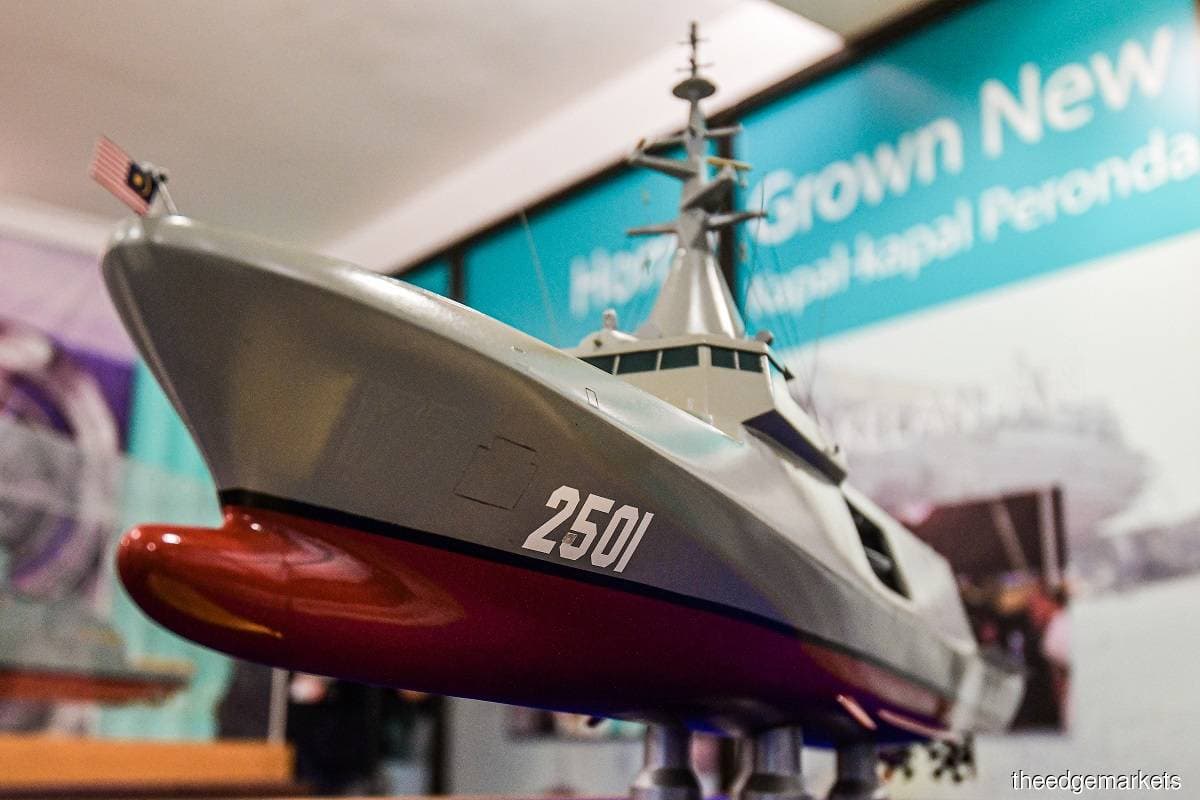
KUALA LUMPUR (Aug 17): The Ministry of Defence (Mindef) failed to protect the government's interest when it entered into a lopsided contract with Boustead Naval Shipyard Sdn Bhd (BNS) in an RM9.13 billion project to build six littoral combat ships (LCS) in 2011, the Special Investigation Committee on Public Governance, Procurement and Finance said in a report declassified on Wednesday (Aug 17).
The investigative committee took Mindef to task, pointing to its failure to protect the government's interest in negotiations with BNS — a wholly owned subsidiary of Boustead Holdings Bhd. It described Mindef's governance as "weak" which resulted in certain clauses pertaining to variation proposals and variation orders being included in the contract that disadvantaged the government.
Boustead Holdings is the flagship of the Armed Forces Fund Board (LTAT), and Boustead Holdings' subsidiary BNS had proposed the project to the government.
The committee observed that the aforementioned weak clauses were why four supplementary contracts proposed by BNS were made, which resulted in the increased price ceiling as well as changes to the design of the LCS, in line with the desires of BNS and not the end user — the Royal Malaysian Navy.
"The weakness of the contract's clauses and BNS pushed the government and the company to finalise certain components of the project, which affected the performance of the project as a whole and will result in increased costs and delays in the delivery of the LCS," it said.
The first supplementary contract, dated March 27, 2015, included a RM128.6 million increase to the price ceiling, raising it to RM9.13 billion from the initial RM9 billion.
Additionally, the committee said that Mindef failed to conduct comprehensive due diligence on BNS to realise the Boustead unit's weaknesses in management as well as critical financial constraints to complete the project.
The Special Investigation Committee on Public Governance, Procurement and Finance added that the involvement of the Economic Planning Unit's (EPU) administrative members at an early stage prior to the contract being signed resulted in the design and components required by the Royal Malaysian Navy to be set aside.
In 2007, BNS sought the support of the EPU in the Prime Minister's Department and the then defence minister Datuk Seri Najib Razak for a project to build six LCS.
Besides reinforcing the Royal Malaysian Navy's armada, BNS said the programme would support activities and enhance the capabilities of the Lumut shipyard and also enable it to continue with its vendor development programme for 2,000 Bumiputera suppliers.
After four years of discussions between BNS and the EPU, the Ministry of Finance (MOF), Mindef and the navy, the project was green-lighted in March 2011, carrying a cost of RM9.13 billion (initially RM9 billion) via direct negotiations with BNS. The six LCS were supposed to be delivered in stages, with the final one in 2023.
However, more than a decade later, BNS' Lumut shipyard remains barren of any completed LCS even after Putrajaya paid RM6 billion. With only a year left to the project's scheduled completion, the government has to decide on its next cause of action.
The ultimatum, and the committee's recommendation
In view of BNS' failure to display an appropriate level of progress towards the delivery of six LCS by 2023, as well as the contract's inherent lopsided nature, the JKSTUPKK proposed an ultimatum to the government and its recommendation on the next course of action.
The investigative committee outlined two possible options the government can undertake going forward: to continue its contract with BNS, or terminate the contract and appoint a new contractor.
The committee said it recommended that the government consider proceeding with the contract with BNS, but with certain aspects of the project to be taken into account before doing so.
Most notably, the committee said that in view of the likelihood of the project’s cost increasing beyond the RM9.13 billion ceiling set, the committee advised the government to consider a reduction in the number of LCS to be procured.
The Special Investigation Committee on Public Governance, Procurement and Finance also requested the government to implement strict controls on its progress payments to BNS to ensure that the funds are only being utilised to finance the LCS procurement project and to deter any possibility of funds being siphoned elsewhere.
Additionally, it said liquidated damages (LD) should be imposed on BNS pursuant to the contract for every LCS BNS delivers and that the government should not consider any LD exemption for BNS.
The committee also recommended that BNS immediately completes and finalises the detailed design of the LCS, and that Mindef sets a deadline in writing.
BNS also needs to improve its governance practices in financial management, and procurement of equipment and services with supplies to ensure that the price set is value for money for the government.
If the government wants to finalise the variation proposal, the committee said that the cost and time required for the delivery of the vessel have to be finalised.
Regardless of the two options, the committee urged Mindef to immediately present the investigation findings, financial implications to the government, and direction of the project to the Cabinet to enable them to deliberate and decide on the LCS project's next cause of action.
Read the full declassified report here.


